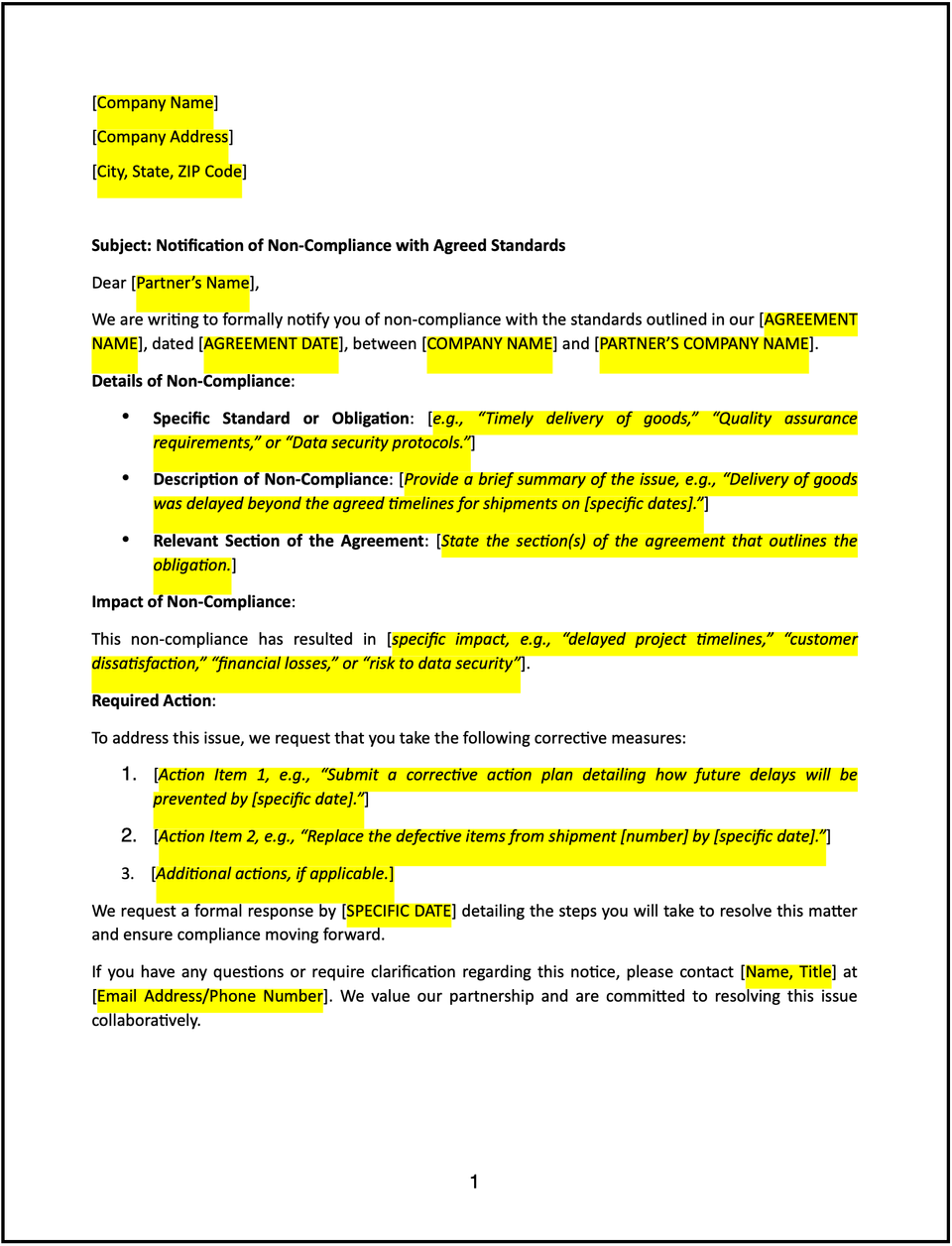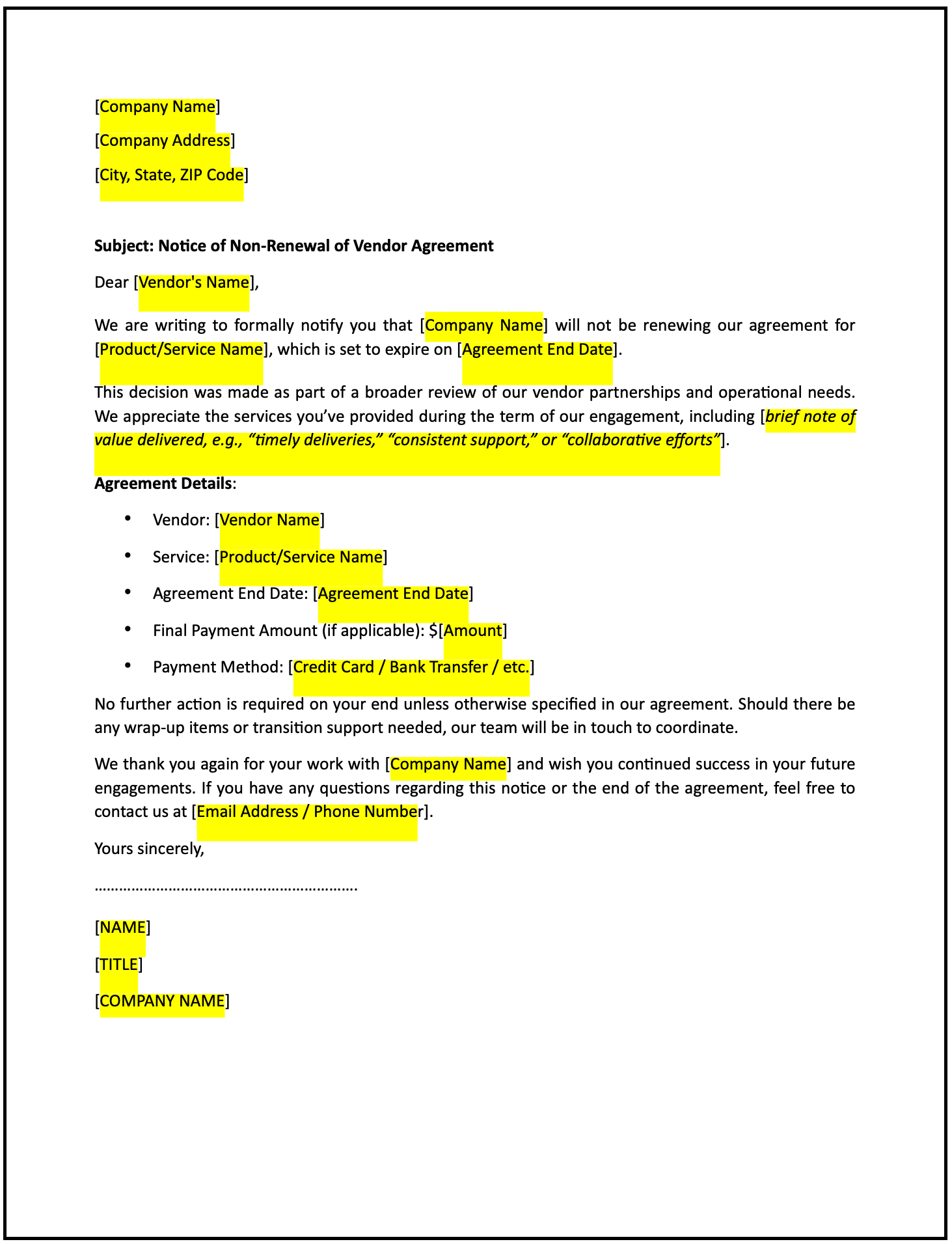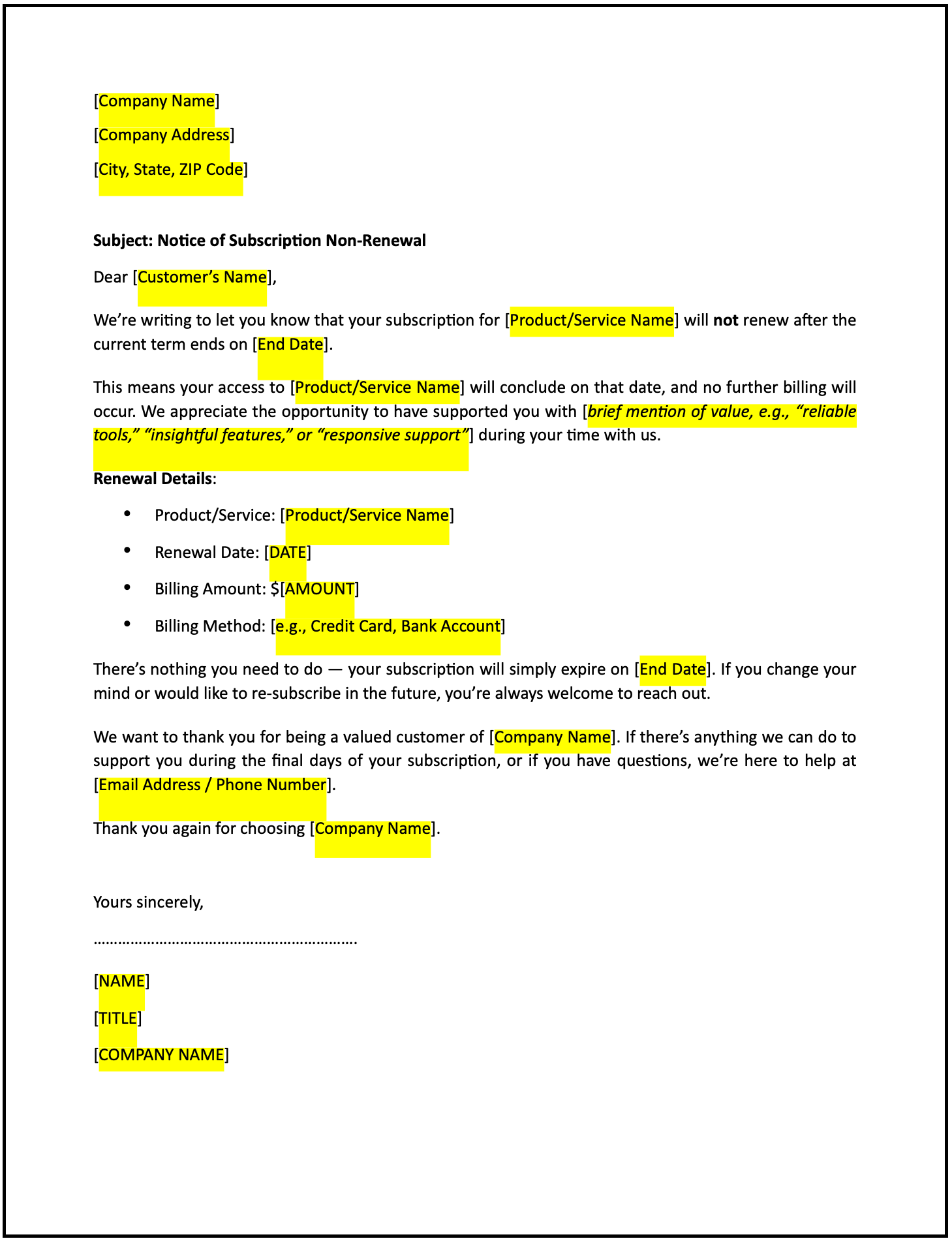Letter of partner non-compliance with agreed standards: Free template

Letter of partner non-compliance with agreed standards
A notification letter of partner non-compliance with agreed standards is a formal communication used to inform a partner about deviations from the terms or standards outlined in a partnership agreement. This letter highlights the areas of non-compliance, requests corrective action, and emphasizes the importance of resolving the issue to maintain the partnership.
How to use this letter of partner non-compliance with agreed standards
- Open with an introduction: Address the partner respectfully and reference the partnership agreement or standards in question.
- State the issue: Clearly outline the specific areas where the partner has not met agreed standards or terms.
- Provide evidence: Include examples or supporting details that substantiate the non-compliance, ensuring accuracy and professionalism.
- Emphasize the importance: Highlight why compliance with these standards is critical to the partnership’s success.
- Request corrective action: Specify the actions required to address the non-compliance and include a deadline for resolution.
- Offer support: Indicate your willingness to collaborate or provide assistance to help resolve the issue.
- Reiterate the value of the partnership: Emphasize your commitment to the partnership and your desire to maintain a productive relationship.
- Maintain a professional tone: Ensure the letter is clear, respectful, and focused on fostering resolution.
- Provide contact information: Include details for the partner to reach out with questions or discuss the matter further.
Benefits of using a letter of partner non-compliance with agreed standards
This letter ensures a structured and professional way to address non-compliance while fostering accountability and collaboration. Here’s how it helps:
- Promotes accountability: Clearly outlining the issue and required actions ensures the partner understands their responsibilities.
- Reflects professionalism: A well-crafted letter demonstrates respect and commitment to resolving the issue constructively.
- Encourages resolution: Providing specific actions and timelines facilitates prompt corrective measures.
- Preserves relationships: Maintaining a respectful tone fosters goodwill and the potential for continued collaboration.
- Ensures clarity: Documenting the issue and expectations avoids misunderstandings and sets clear standards.
Tips for writing an effective letter of partner non-compliance with agreed standards
- Be specific: Clearly describe the non-compliance, including evidence and references to the agreed standards.
- Use professional language: Maintain a respectful and constructive tone to foster collaboration.
- Provide context: Briefly explain why compliance with the standards is essential to the partnership’s success.
- Highlight next steps: Share actionable details about the required corrective measures and timelines.
- Avoid assigning blame: Focus on resolving the issue rather than criticizing the partner.
- Keep it concise: Focus on the key points while ensuring the tone is professional and solution-oriented.
Frequently asked questions (FAQs)
Q: What details should I include in this letter?
A: Include the partnership agreement reference, areas of non-compliance, supporting evidence, requested actions, and deadlines.
Q: Should I personalize the letter?
A: Yes, addressing the partner by name and referencing specific aspects of the issue demonstrates attentiveness.
Q: Who typically sends this letter?
A: Organizational leaders, compliance officers, or partnership managers typically send this letter.
Q: How formal should this letter be?
A: The tone should be professional and respectful, focusing on resolving the issue constructively.
Q: When should this letter be sent?
A: Send the letter promptly after identifying non-compliance to address the issue effectively.
Q: Can this letter include a request for a meeting?
A: Yes, suggesting a meeting to discuss the issue and solutions can help foster collaboration.
Q: Is acknowledgment from the recipient required?
A: Yes, requesting acknowledgment ensures the partner is aware of and addressing the issue.
This article contains general legal information and does not contain legal advice. Cobrief is not a law firm or a substitute for an attorney or law firm. The law is complex and changes often. For legal advice, please ask a lawyer.


